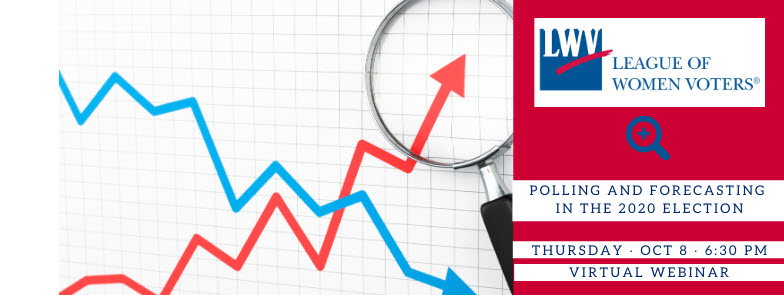Follow polls at your own discretion
Presentation dissects the reliability of election forecasting
October 18, 2020
Political science professors took to the stage Oct. 8 with the League of Women Voters of Whitewater Area to help others better understand how polling and forecasting assist in collecting data for elections.
Eric Loepp, Ph.D accompanied by host Karl Brown, Ph.D. welcomed the public to attend a virtual presentation on Zoom. Participation and questions were encouraged in the chat. Beginning the presentation, Loepp touched on three major factors of polls: Randomization, participation, and execution of the pollsters.
To best conduct a poll the participants must be randomly selected, but as Loepp explained – polls can also be flawed in this effort. In the perfect scenario where every American has the same likelihood to get randomly selected to participate in a poll, there is still a chance for error.
Loepp also noted that it is important to make sure that the pollsters can contribute to this margin of error—who do they talk to, and how do they present the questions? Following this idea, Loepp introduced the impossibility of having a truly representative sample and the chance of there being dishonest answers.
“It is really incumbent upon all of us that we really check ourselves when we’re reading polls,” said Loepp. “The most important thing is that you and I are looking for those details. Who did they talk to, when did they talk to them, how did they ask the question?”
The 2016 Presidential Election polls were then analyzed by utilizing these factors. The “shy trump” phenomenon, people changing their minds, and overrepresentation of college graduates curated an inaccurate prediction.
“The bottom line is pollsters underestimated the enthusiasm and the voting intention amongst several groups but most notable amongst white non-college educated respondents,” said Loepp.
This group tends to vote Republican. Not always, but most often. Likewise, college educated voters tend to vote Democratic. The pollster’s lack of attention to the education variable essentially was the reason for this failure in the polls. However, this is still a new phenomenon.
Forecasts were also explained.
“Forecasts, just like weather, are sophisticated predictions of what we expect to happen in the future,” said Loepp.
There are four ways to forecast elections: structuralist approach, aggregators, synthesizers, and judges. All of these include different formulas and calculations, some more complicated than others, to predict the outcome.
After the presentation, the public was able to have some questions answered.
“How can any of these prenostications be taken seriously as legislators in courts continue to limit the eligibility of votes to be counted?” asked a participant.
Loepp commented on the contingency of being able to access the ballots. All reliable pollsters will make this statement clear as well. The polls only work assuming that everyone is able to vote.
“For me, I think FiveThirtyEight is a pretty good go-to, it seems Marist does good polls as well, and Marquette as well,” Brown said.
Adding on, Loepp was asked to mention his top five pollsters which he pointed back to FiveThirtyFive. Their website provides ratings of different pollsters, making it easier for voters to interact with the most reliable polls.
“Above all, everyone, go out and vote,” said Brown.
Get informed, register, and vote. Everyone able to should exercise their right to vote. Visit https://www.uww.edu/vote for more information on how to cast your ballot in the upcoming elections.













